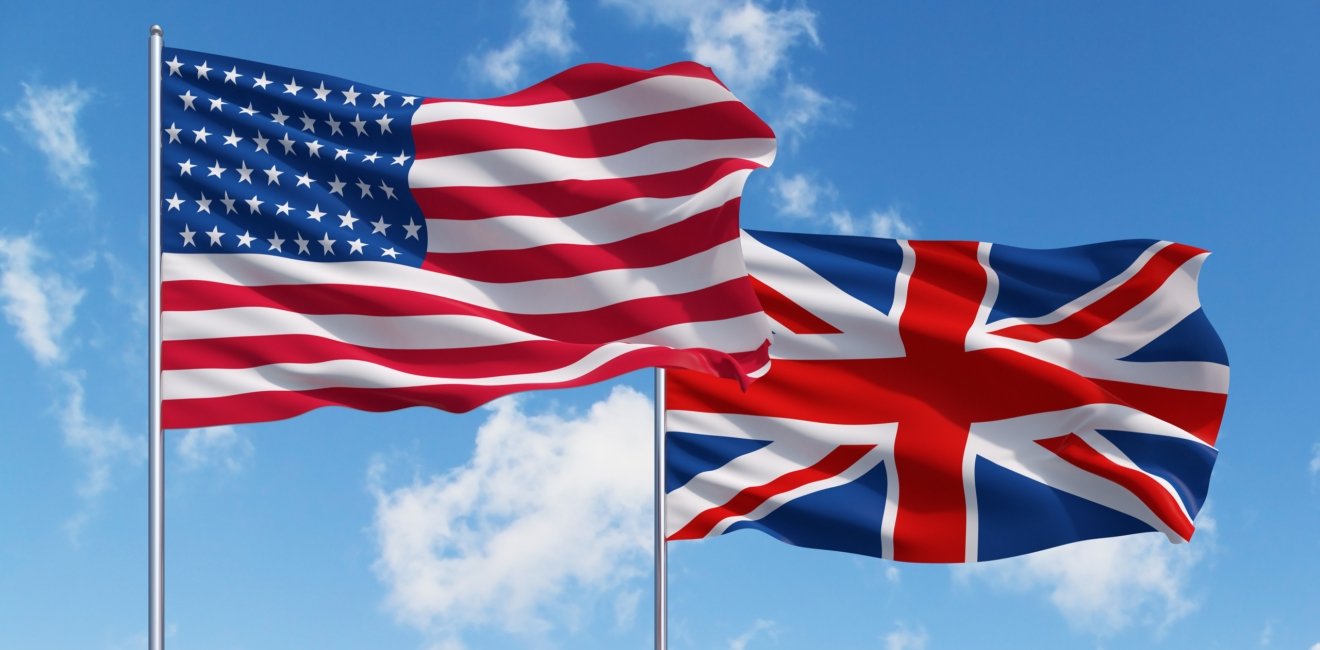UK Prime Minister Boris Johnson is eager to demonstrate that “Britain can go it alone” freed from the shackles of the European Union (EU). Beyond outreach to Commonwealth nations of Australia and India, the Prime Minister reached out to the United States. On November 7th, he tweeted:
The United States is our most important ally and I look forward to working closely together on our shared priorities from climate change to trade and security.
Four days later, he was one of the first national leaders to telephone his congratulations to President-elect Biden. He committed the British government to work closely on reducing carbon dioxide emissions, negotiate together on NATO’s New Strategic Concept, and pursue the UK/US trade talks, which are now approaching their fifth round of negotiations. Coordination on climate change may be the easiest task.
During the election campaign, Biden committed to organizing a world summit on climate. Its purpose is to help leaders of major carbon-emitting nations tackle climate change, but no date has been set for that gathering. In addition, this year’s meeting of COP26 was postponed until December 2021 due to the pandemic. The British will now chair that meeting to be held in Glasgow, Scotland. The postponement gives time for the incoming Biden-Harris administration to work closely with Britain and like-minded partners. They can determine whether the British-chaired COP26 meeting is sufficient or whether a separate summit for the major emitters is advisable. Both governments have domestic priorities, but Biden and Johnson recognize that climate change poses an existential threat which should be addressed through “the power of example.”
However, the ‘special relationship’ built on shared values remains wishful thinking unless backed by some hard agreements. The Prime Minister could make commitments on defense and intelligence sharing. Britain could assume a heavier burden in defense cooperation that would demonstrate that it remains relevant to the United States. Johnson argues that “allies matter” and Biden states that “America is back.” In 2021, there is an opportunity to put money behind the rhetoric in their discussions of NATO’s New Strategic Concept. Together, they could seek to halt the democratic back-sliding underway within NATO and address disruptive technologies. Furthermore, constructive British and American ideas are needed to reform NATO’s nuclear posture and salvage New START.
Beyond defense, both leaders could reinvigorate the 1958 Mutual Defense Agreement for Science and Technology. A Memorandum of Understanding could be reached on joint research and development between academic institutions and the private sector. Together, scientists could “level up” on green technologies, continue joint R&D on vaccines, and anticipate mutations of COVID-19. Shared language and values are assets in the pursuit of these joint enterprises.
However, difficult issues remain: The UK seeks to reduce, if not eliminate, tariff and non-tariff barriers and end the current 2.5 percent tariff on the export of automobiles, including Jaguars and Mini-Coopers to the United States. The US has sought to remove non-tariff barriers, such as the ban on the chlorinated washing of chicken parts, the hormone treatment of meat, and genetically modified crops. Despite months of negotiations, the two sides have failed to address these British ‘animal welfare’ issues.
We should expect the trade talks to continue slowly, but two clouds looms over the U.S. negotiators. Vice President Biden has stated publicly that the UK made a mistake when it voted to leave the EU; he would have voted to remain. For the United States, the UK market was sizable when part of the Union of 28 nations. For both parties, only minimum economic benefits exist in concluding an FTA with the UK. The British Department of Trade and Industry anticipates only a 0.7% to 0.16% growth in GDP over 5 years from an FTA with the United States -- numbers that hardly compensate for the economic loss of leaving the EU.
The darker cloud is the Internal Market Bill that the Prime Minister pushed through parliament in late September. The Bill permits Whitehall to break certain custom and legal provisions in trade between Britain and Northern Ireland. It may have been a politically expedient means to avoid tariffs across the Irish Sea, but it broke international law. The Northern Ireland Secretary of State was explicit in stating that the Internal Market Bill breaks international law but only in “a specific and limited way.”
If no tariffs are imposed on goods crossing the Irish Sea, they will be imposed on the land border between Northern Ireland and the Republic of Ireland. That contravenes the 1998 Good Friday Accords, mediated by U.S. Senator George Mitchell with the full support of the U.S. Congress. House Speaker Nancy Pelosi stated she will not pass legislation to enact an FTA with the United Kingdom if the British rupture those accords.
The British response is to say that the Internal Market Bill is nothing more than a contingency provision which will provoke a “UK infraction,” not a break of international law. Legally minded Americans are not so sanguine; if you break the law, you pay the consequences. For a Democratic president who respects the rule of law, the consequences are probably to slow down negotiations on the UK/US FTA. After all, if the Prime Minister can dismiss international law on matters that affect the Republic of Ireland, why not use the same argument on matters that affect the United States? Biden has Irish ancestry, so we should not expect him to remain benign on this issue.
With the UK’s departure from the EU moving towards an FTA with thin substance, Boris Johnson needs to anchor the UK closer to the United States. He has demonstrated agility in swiftly recognizing Biden as the president-elect and he will continue to negotiate an FTA, but pragmatic and immediate steps need to be taken to recreate a meaningful ‘special relationship’ that has grit. Therefore, Johnson must make a commitment neither to implement the Internal Market Bill, nor rupture the Good Friday Accord. Furthermore, expect him to show Washington that the UK seeks a strong partnership based on reducing carbon, strengthening defense, and encouraging scientific cooperation.
Author


Global Europe Program
The Global Europe Program is focused on Europe’s capabilities, and how it engages on critical global issues. We investigate European approaches to critical global issues. We examine Europe’s relations with Russia and Eurasia, China and the Indo-Pacific, the Middle East and Africa. Our initiatives include “Ukraine in Europe”—an examination of what it will take to make Ukraine’s European future a reality. But we also examine the role of NATO, the European Union and the OSCE, Europe’s energy security, transatlantic trade disputes, and challenges to democracy. The Global Europe Program’s staff, scholars-in-residence, and Global Fellows participate in seminars, policy study groups, and international conferences to provide analytical recommendations to policy makers and the media. Read more

Explore More
Browse Insights & Analysis
Promoting Convergence in US-Brazil Relations

360° View of How Southeast Asia Can Attract More FDI in Chips and AI

Israel Escalates Attacks in Gaza: What’s Next?



